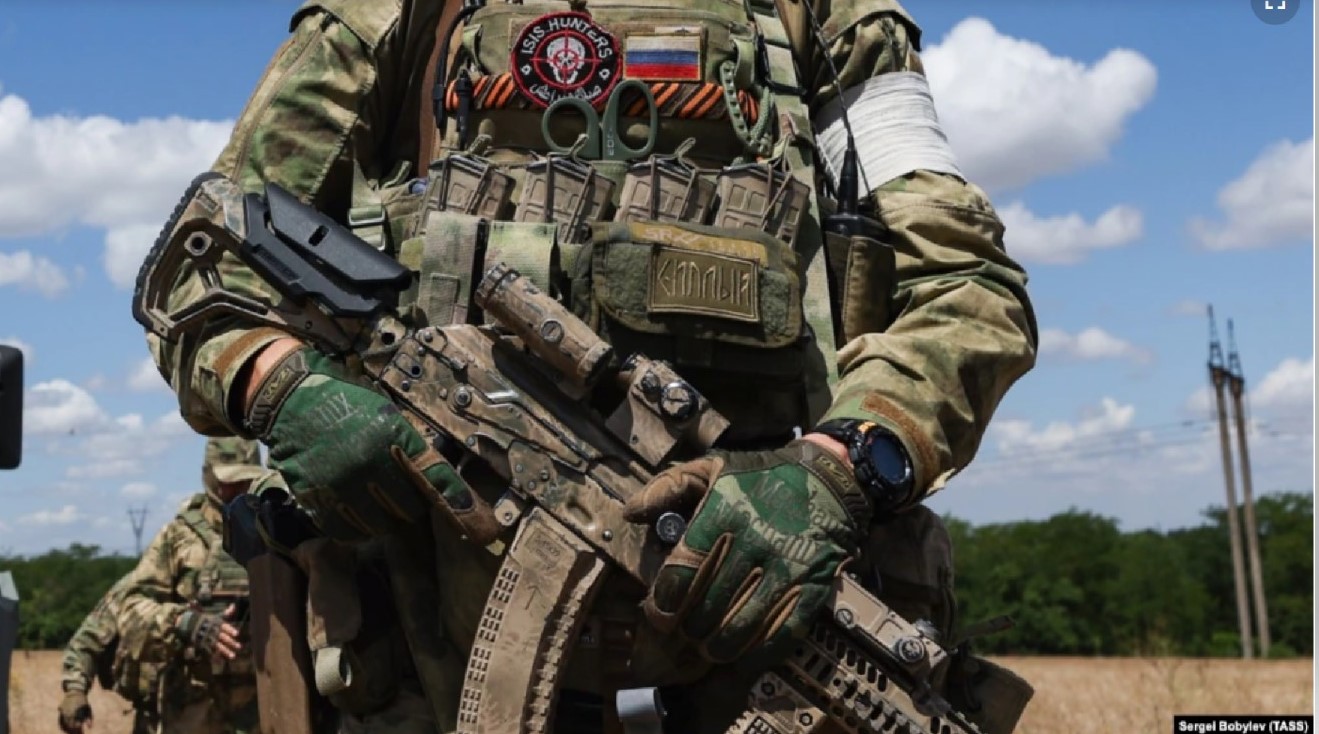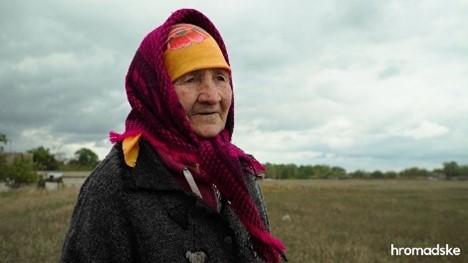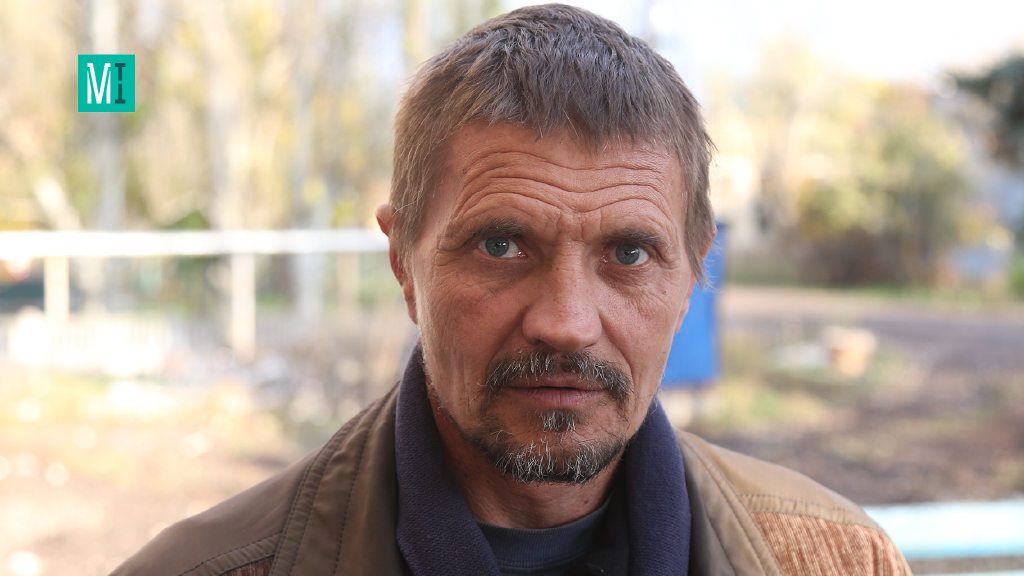Russians brutally tortured and sometimes killed Ukrainian civilians in village school in Kherson oblast

The accounts from those villages which have already been freed after months of Russian occupation leave no scope for doubt about the likely scale of Russian crimes that will emerge when the Russians are finally driven out of the entire Kherson oblast.
Correspondents from the Media Initiative for Human Rights and Hromadske TV have visited Bilyaivka in Kherson oblast, seen the destruction and mess that the invaders left and received first-hand accounts of Russian torture and killings.

The Hromadske team met Tetiana, an elderly woman from Bilyaivka who recalled the relentless shelling of the city, including a shell that hit her own garden and the shrapnel that wounded her in the chest. She calls the Russians “barbarians, some kind of monsters”, who had probably never had anything themselves, and so burst in, turning everything in the Ukrainians’ homes upside down, leaving a filthy mess everywhere.
Pani Tetiana spoke of one young man who had been shot and killed seemingly only because he was unfortunate enough to be walking along the road when the Russians were passing. This was on the Feast of the Annunciation, which is also a religious festival for the Russian Orthodox Church whose leading clergy are treating Russia’s attack of Ukraine as a ‘holy war’.
Whenever the Russians seize any Ukrainian territory, they begin taking local residents prisoner and Bilyaivka was no exception. While some of the invaders’ victims were chosen arbitrarily, the invaders targeted, among others, men who had been earlier or were now engaged in defending Ukraine, or members of their family. Hromadske met one 70-year-old father of a soldier who had, thankfully, received warning that he was in danger and had spent the occupation at his sister’s home.
Volodymyr had not left, although he had earlier taken part in Ukraine’s ‘anti-terrorist operation’ [the military conflict in Donbas]. He was subjected to seven armed searches by the Russians and was then taken prisoner for half a day in the local school that the invaders turned into a prison and torture chamber. He survived, he believes, because the Russians mixed up two men called Volodymyr, with the same surname, but different patronymics. They killed the other man.
An older man, who is also Volodymyr, had been the head of Bilyaivka at one time. As soon as the Russians learned of this, they seized him. He recounts how they took him to their ‘prison’ in the school and hit him in the stomach so hard that he lost consciousness. When he came to, he was on the floor with another man lying next to him. He asked the man what had happened, only to hear a voice from another part of the room saying to leave him be as the man was dead. The men subsequently pleaded with the Russians for days to take their victim’s body away.
There were 12 other men held with Volodymyr. The Russians beat all of them with a wooden mallet around the ribs. They were not given any food, and the Russians tormented them instead of providing water to drink. After the men were forced to drink urine, the Russians turned up and asked if they wanted water. All obviously said yes, at which point the Russians took a bucket with water and simply poured it over the floor, saying “drink”.
Volodymyr spent three months in Russian captivity. He and four other men from Bilyaivka were finally forced into reading out a text on video in which they had to lie and say that they had been treated and fed well, that their President was bad, etc. After this they were taken to a field around eight hours away from Bilyaivka and told to walk back.

The Russians held (and sometimes killed) Ukrainians from other villages, as well as Bilyaivka at the school, with people held for several weeks or months. Artur Prikhno from the Media Initiative for Human Rights spoke with Serhiy Urodlivchenko from Lyubymivka. He was taken prisoner and held at Bilyaivka for three months, during which time his wife and four children did not even know if he was alive.
There were real grounds for concern and Serhiy confirms that some of those Ukrainians whom the Russians seized died from the torture and beatings inflicted.
Serhiy is an electrician, who was responsible for the lighting and heating at a local business growing vegetables in hothouses. He was seized, together with a guard called Taras, when the Russians burst into the premises on 11 March. Although there were also fighters from the Russian proxy ‘Luhansk and Donetsk people’s republics’ in Lyubymivka, Volodymyr is certain that he was seized by Russian soldiers.
The two men were initially taken to a farm which the invaders had clearly seized and held there, with three other prisoners soon brought in. One had been seized for no apparent reason, and one possibly because he was a volunteer from the village of Sokorivka, who was travelling to government-controlled areas and bringing back food for people in the village.
The fifth person was wounded. He explained that he was from near Kakhovka and had been seized while accompanying humanitarian aid. The Russians had found something in his phone that they considered ‘suspicious’. “His legs had been shot at. He said that the Russians had done this during the interrogation. They had forced him to dig his own grave because they found a red and black cover in the glove compartment. He heard the Russians calling him a ‘pravosek’” [a member of the Ukrainian nationalist organization Right Sector].
Although the men were not given any reason for their captivity, they were given food, etc., and there was even a doctor, during those first three weeks held prisoner at the farm.
On 4 April, he and Taras were taken to Bilyaivka. The Russians actually claimed that they were taking them to “a safe place” because this was “not your war”.
In fact, they were taken to the school in Bilyaivka that the invaders had turned into a prison for civilian hostages. They seem to have been the first, but soon the number increased to eleven. It was from one of the local residents held hostage that they learned that they were imprisoned in the school building.
They were forced to sleep on wooden slats in a room without any natural lighting, and without any toilet facilities. For the first four days they received no food at all. Later and until 24 April. they received food once in two days. After the Russian lieutenant responsible for provisions turned up, they began receiving something to eat once a day, though the conditions were appalling, with all the men forced to take turns drinking the soup from a five-litre container. They hardly ever received even bread.
Serhiy says that hunger was only one of the torture methods that the Russians used. He recalls how one of the men, whose name he learned later was Oleh, was so savagely beaten that he died shortly after he was brought back to the cell, following at least forty minutes of ‘interrogation’. Another prisoner, whom Serhiy did not know, also died. The man had behaved very strangely and had said that he had been injected with something. He died after four days, having been tormented with thirst and becoming thinner and thinner. The Russians who were guarding them told the other prisoners that if “you behave badly, you’ll get the same treatment”.
Serhiy appears to remember Volodymyr, the electrician, though gives a slightly different account of how the latter was taken prisoner. There was a young man who said that he had helped people in the village and had simply irritated the Russians, with there seemingly no better reason for his imprisonment. Two farmers from Trudolyubivka were seized with the Russians claiming that they had been following Russian military movements. In fact, the farm had valuable equipment and was therefore equipped with a lot of CCTV cameras. The oldest of the hostages was 68, the youngest – just over 20. One of the hostages had diabetes and was desperate to receive medication. He received nothing.
On one occasion, each of the men had a bag put over his head and was taken ‘for interrogation’. In Serhiy’s case, the interrogator, whom he could not see, told him that there were three possibilities: that he would be shot, freed, or sent to a prison in Russia. After that, they asked him his address, the makeup of his family, and then took him back to the cell. The Russians claimed on several occasions that the men would be released on condition that they were taken to Kakhovka or Nova Kakhovka. The hostages had no reason to trust the Russians and all refused. Three men, however, were taken away against their will, and not seen again.
Serhiy and seven other men were put in a car on 12 June and driven in an unknown direction. The stress, of not knowing where they were being taken and why must have been terrible. In fact, however, they too were taken to a field and told which direction their homes were in and were, thus, released.
Their villages were finally liberated in October.





